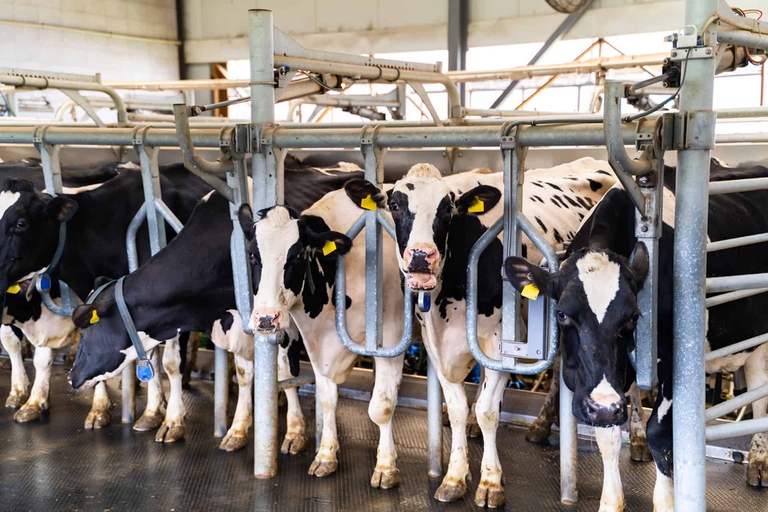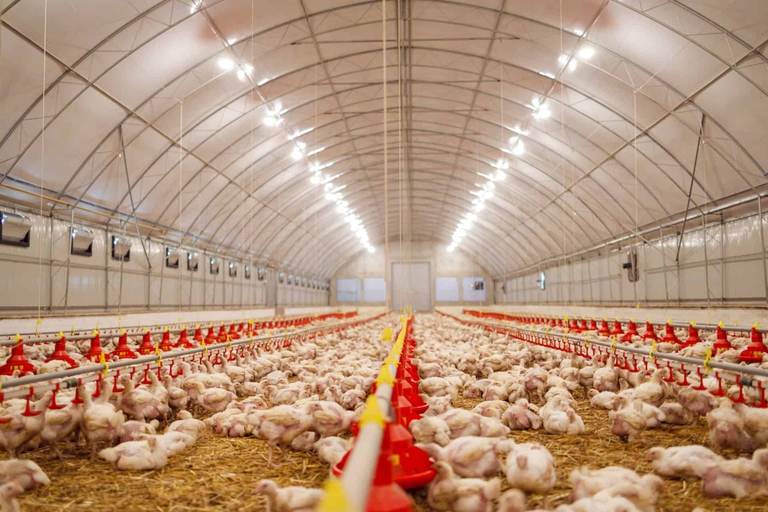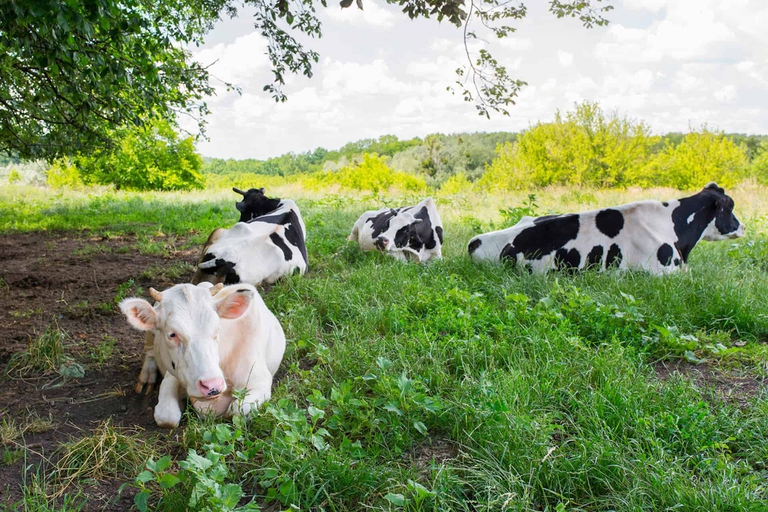https://www.lifegate.it/allevamenti-intensivi-mozione-dibattito
- |
- The bill for the transition of intensive farming is published and waiting to be discussed by Parliament.
- Meanwhile, an event in Rome fueled the social debate with interventions from producers, doctors and veterinarians, researchers and politicians.
- Another farming model is necessary for the health of the planet, animals and people:agroecology makes it possible.
They consume and impoverish the soil, they pollute the water, they emit greenhouse gases, reduce biodiversity, cause suffering in animals, increase the risk of epidemics and cause the formation of particulate matter:The intensive farming I'm a unsustainable production model for the environment, animals and people.Of why and how overcome this production system it was discussed on October 24th during a debate organized in Rome by environmentalist associations Greenpeace, WWF Italy, Isde Doctors for the Environment, Lipu and Earth!, promoters of the proposal AC law 1760 “for the progressive agroecological transition of intensive farming”, which has been published on the website of the Chamber of Deputies on 23 July, with the signatures of 21 parliamentarians from five different political groups.

Stop new farms, reconversion fund, agroecology:what the law proposes for the transition of intensive farming
The objective of the event is to keep attention on the topic high and arrive at one quickly scheduling of the discussion of the proposal in Parliament.The text of the law immediately proposes a moratorium the opening of new intensive farms and the increase in the number of animals raised in existing ones.To encourage the ecological transition of large and medium-sized companies, it also provides a sector reconversion plan financed with a dedicated fund, and aims to make protagonists the small farms, in favor of a model based on agroecological techniques, on the efficient use of resources and on access to healthy, quality food, on the creation of supply chains that guarantee fair compensation to workers and producers.
A motion available to the municipalities, the case of Viterbo
On the occasion of the conference, a was launched motion available to Italian municipal councils to strengthen the participation of local communities in the management of the territories in which they live environmental and socio-health impacts of intensive farming.An example is the municipality of Viterbo, a territory where agriculture is an added value, but which today is struggling with the expansion of intensive poultry farming:in a fraction of the town there are more a million chickens, 387 per inhabitant.“We hope that a possible law can give us the tools to carry out territorial planning because urban planning regulations are not enough to regulate and limit intensive farming,” said the mayor. Chiara Frontini.“At the moment we have rolled up our sleeves and are drafting a shared protocol with the Order of Agronomists and the university that promotes a model of sustainable economic development for the environment and biodiversity”.

A concrete example of agroecology and its advantages
Anna Federici, from the Boccea agricultural company in Rome, told his story concrete experience:“The transition to agroecology in my company seemed to me to be the only possible path.It is a systemic approach in balance with the resources of the territory, which works the more it is self-sufficient and capable of networking with other farmers.We grow cereals for human consumption and partly for animals, we have land dedicated to grazing where it is visible how the soil has become a sponge rich in organic substances and humus.It is a system that requires time, but not necessarily, when fully operational, more resources.Today there are laws which, for example, do not allow us to make compost as it should be done, funds would be needed for fences, for water management, for training on transversal skills".
“Another breeding model is possible,” he explained Elia Marabotto, veterinarian.“The agroecological one adapts to the local ecosystem, is based on respect for the ethology and physiology of animals, promotes the fertility of the soil which thus manages to store carbon and retain water, combines livestock production with agricultural production by creating companies more resilient because it diversifies sources of income.The animals' nourishment consists of local fodder and not imported soya which, once it enters the composition of the sewage, changes the ecosystem balance;from agroecological farming, more nutritious animal-derived products are obtained, richer in carotenoids, vitamin E, antioxidants and saturated fatty acids".

Overconsumption and food waste:two issues to consider for the transition of intensive farming
Coma pointed out Laura Reali, director of Isde Italia - Italian Association of Doctors for the Environment and president of Ecpcp (European Confederation of Primary Care Paediatricians) "intensively bred animals cannot be healthy and can only give us meat full of antibiotics, pesticides and supplements, substances that can reach those who consume it, with an increase in pathologies.Furthermore, we don't need all this meat produced today:the quantities suggested for a child's needs are, for example, 30 g of protein per day".
A question of overproduction and overconsumption which also connects to the problem of food waste, placed by Silvio Franco, professor of economics of natural resources and the environment at the University of Tuscia:“Food safety is a false theme if we consider that today we waste a third of the food produced in the world and that if we recovered it we would feed more people.Let's avoid waste instead of increasing productivity:these are the serious measures to be taken."Franco also raised the question of using specific impact indicators for agriculture:“The agricultural company is the only one that has natural capital within the company's capital, an ecological balance between resources and impact is needed”.
They also attended the event Michela Vittoria Brambilla, president of the parliamentary intergroup for animal rights and environmental protection, ed Eleonora Evi, member of the VIII Commission, Chamber of Deputies, who spoke about the need to address these issues, which are currently absent from the political agenda, with courage and without looking the other way.Other interventions were those of Emilio Borrelli, Avs MP, Alessandro Caramiello, Planet 2050 M5S, Roberto Colombero, president of Uncem (National Union of Municipalities, Mountain Communities and Bodies) Piedmont and mayor of Marmora (Cn), Famiano Crucianelli, president of biodistrict of via Amerina and Forre.Representatives of the associations were present Federica Luoni, Lipu agriculture manager, Ilaria Scarpetta, institutional office WWF Italy, e Fabio Ciconte, director of the Terra! Association.
